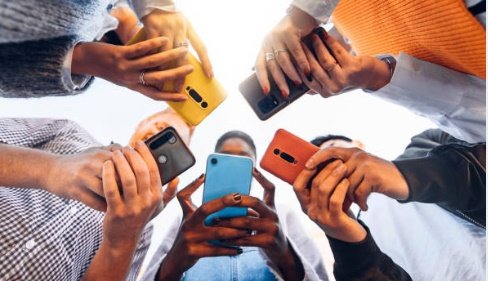New Delhi, July 05 – As smartphones are becoming an essential aspect of people’s lives, it is found that for every Re1 spent on owning a smartphone, a smartphone consumer in India has a financial benefit of 6.1 times, a new study said on Wednesday.
According to the study conducted by vivo in association with Techarc, the economic value of smartphones for the rich is almost 50 per cent higher in India as compared to the middle class, meaning the economic value that a middle-class (annual household income of 5-30 lakh) derives from their smartphones is 10.1 times greater.
The study sheds light on how smartphone consumers are increasingly relying on their smartphones to pay their utility bills and shopping/booking/hiring of products and services.
“Smartphone is one such thing which has been constantly evolving over a period of time due to continuous innovations and improvements by the OEMs. This has made it a highly beneficial companion for users resulting in increasing economic value as outlined in this research. With this trend the consumers won’t mind buying premium smartphones as they only see the value derived multiplying,” Faisal Kawoosa, Founder & Chief Analyst at Techarc, told IANS.
The study also highlighted the economic value derived from the different digital activities that a consumer performs on his phone.
According to the study, service booking and hiring emerged as the most profitable, with a return of eight times the investment, followed closely by grocery purchases at 7.9 times, utility bills and shopping at 7.6 times, essentials at 7.4 times, and digital cash at 6.9 times.
It was observed that affluent segments contributed the most to digital services, including travel ticket bookings, hiring service professionals, and booking cabs, among others.
The average economic value for adults between the age of 41-60 was 7.7, only marginally ahead of the young adults (age of 25-40) at 7.6.
In addition, the economic value for people between the age of 18-24 was recorded at 5.5.
The average economic value stood at 7.6 for metro followed by 6.2 for non-metro cities, the study showed.
“Beyond connecting people, the smartphone has become an integral part of our lives due to its multi-faced functionalities ranging from professional or personal use like booking cabs, grocery, managing finances, and beyond,” said Geetaj Channana, Head, Corporate Strategy, vivo India.
Further, the study mentioned that the smartphone’s economic value is in close range for both the metro (7.6 times) and non-metro (6.2 times) cities of the country.




